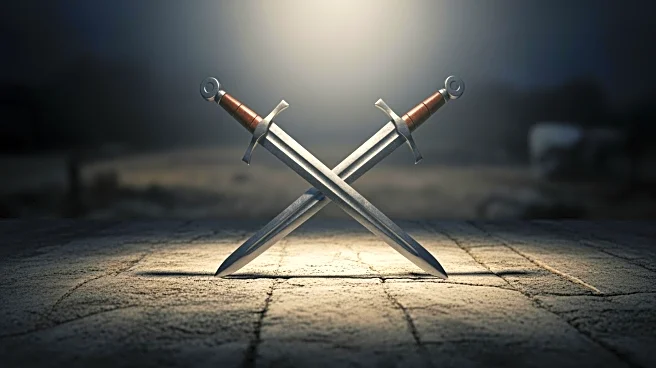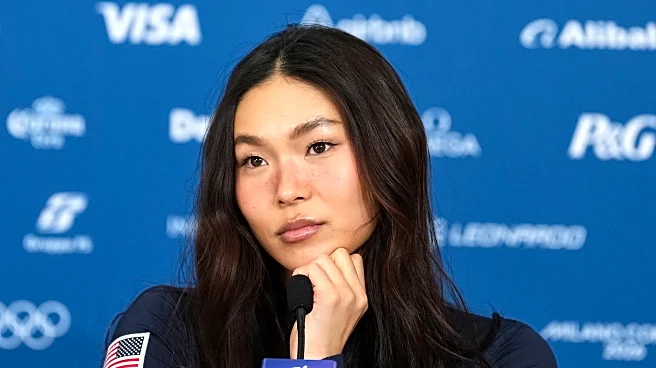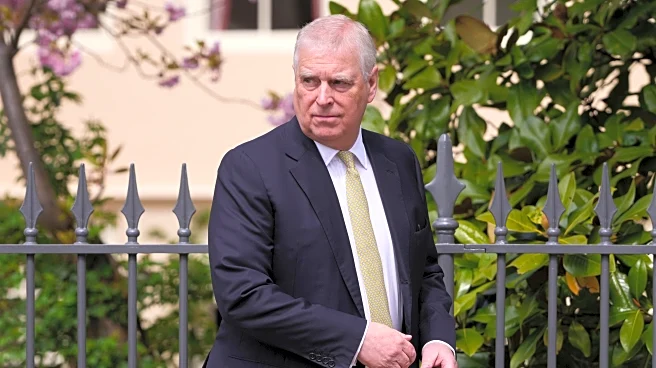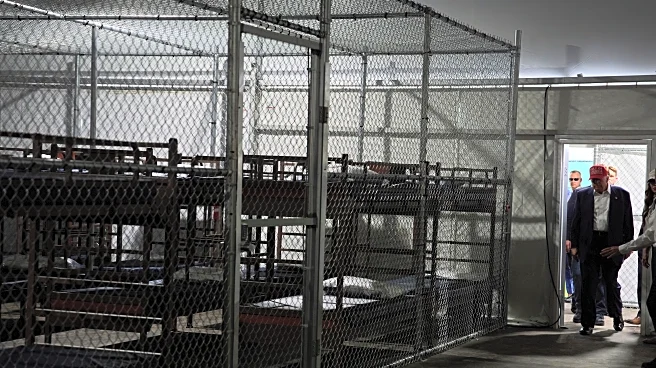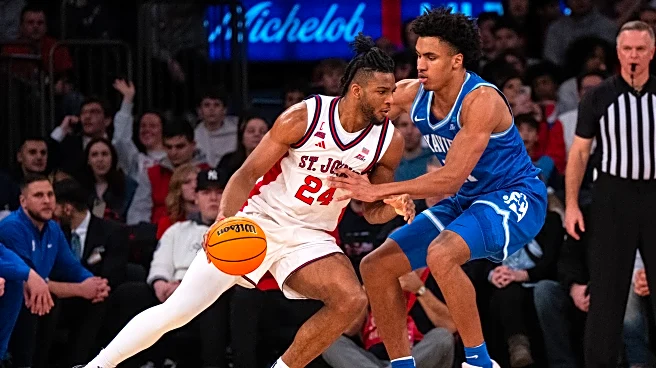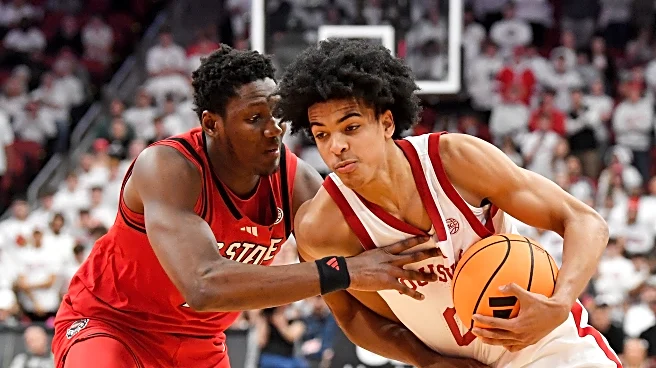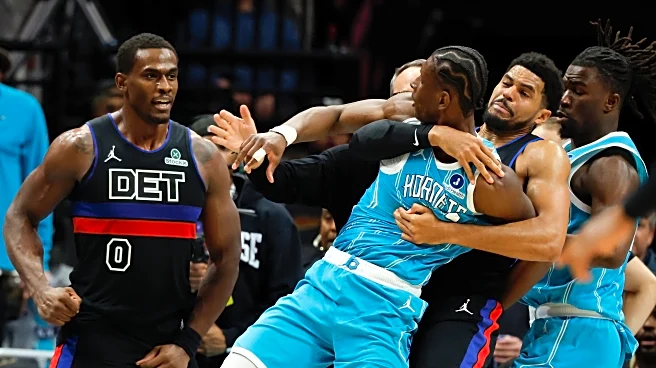What's Happening?
UFC middleweight champion Khamzat Chimaev has publicly criticized Ikram Aliskerov following an interview Aliskerov gave to Meta Fight on YouTube. Chimaev, who defeated Aliskerov in 2019 with a first-round
knockout under the Brave CF banner, took to social media to express his discontent. He accused Aliskerov of hypocrisy, stating that when he challenges someone from Dagestan, it is seen as an interethnic issue, whereas when others challenge him, it is considered sport. Aliskerov is set to fight Korean Jun Yong Park on October 25 in the preliminary card of UFC 321. Aliskerov's last fight was a victory against Andre Muniz in April, while Park last fought Ismail Naurdiev in June, securing a win by unanimous decision.
Why It's Important?
The exchange between Chimaev and Aliskerov highlights ongoing tensions within the UFC, particularly concerning interethnic dynamics in the sport. Chimaev's comments may influence public perception and add pressure on Aliskerov ahead of his upcoming fight. The situation underscores the complex interplay between sportsmanship and cultural identity in MMA, potentially affecting how fighters from different backgrounds are viewed and treated within the industry. This could have implications for future matchups and the UFC's approach to managing fighter relations.
What's Next?
Aliskerov's upcoming fight against Jun Yong Park will be closely watched, not only for the athletic competition but also for any further developments in the narrative between him and Chimaev. The outcome of the fight could either escalate or diffuse the tension, depending on the result and any subsequent comments from the fighters. UFC management may need to address these interethnic issues to prevent them from overshadowing the sport's competitive nature.
Beyond the Headlines
The situation raises questions about the role of social media in sports, where athletes can directly communicate with fans and opponents, sometimes leading to public disputes. This dynamic can influence the sport's culture and the relationships between fighters, potentially affecting their mental preparation and public image.
